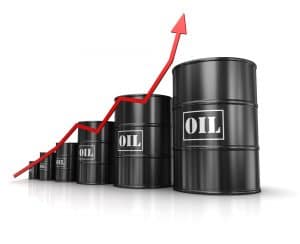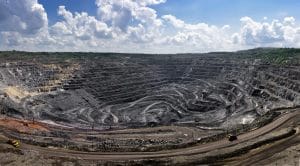
- By: admin
- 0 comment
Why Hydrogen is the future energy source
When Elon Musk tells you that hydrogen powered cars are “mind-bogglingly stupid,” you know that they must have a future. Admittedly, he has been saying that since at least 2013. I presume, because he wants to promote his battery electric Tesla cars. That’s not to say that battery electric power is not an important medium-term solution to limit emissions from cars. However, when the G20 met in Japan in 2019, hydrogen as a fuel source was fully on the agenda. Hydrogen is the fuel of the future for a number of reasons, and they are not all to do with decarbonising the economy. One is Geopolitical and the other concerns surrounding the manufacture and use of battery electric vehicles. So, why is Hydrogen the future energy source.
A Geopolitical Review
Energy Security
Ever since the Oil Shock in 1973, energy security has been of growing concern. A recognition of this long-term risk has driven research into alternative energy sources and energy conservation.
The situation is exacerbated because the majority of the world’s oil is situated in countries that are unstable, potentially unstable or even downright hostile to the West. The bulk of the world’s fossil fuels come from Russia, Iran, Iraq, Saudi Arabia, the Gulf states, Nigeria and Venezuela. The revenue received is vital to these countries’ economies and their international ambitions. Until recently, North Sea oil (and gas) insulated the UK from energy security worries, but as the supplies run down concerns have increased. Germany’s increasing reliance on Russian gas imports has rung alarm bells with many.
For governments, the attractions of home-produced green energy are compelling. No longer will they be held hostage to the whims of foreign powers. No longer will fluctuations in the oil price play havoc with tax takes. No longer will large amounts of foreign currency reserves be spent on oil and gas. The balance of payments will see a major improvement. Not to mention the positive impact on climate change and air pollution.

As the 19th September 2020 issue of The Economist pointed out in its leader, “Power in the 21st century”, the reactions of the petrostates may not be the only risk. China could gain temporary dominance of the green supply chain. To quote, “[it] controls much of the refining of minerals critical to clean energy, such as cobalt and lithium”.
Climate Change
In the UK, the government’s ambition to achieve Net Zero, is the most obvious driver to remove hydrocarbon fuels from the economy. Net Zero means that the UK’s total greenhouse gas emissions would be equal to or less than the emissions the UK removed from the environment. This can be achieved by a combination of emissions reduction and emissions removal. There are similar schemes in other countries with the same aim in mind. Hydrogen has widespread applications across the economy.
The Limitations of Battery Electric vehicles.
Many view battery electric vehicles as the future for road transport. Although I believe they are a medium-term solution, hydrogen is the long-term answer. I base this assessment on three main concerns.
1. The Supply of Cobalt and Rare Elements.
Cobalt is central to the production of lithium-ion batteries used in electric vehicles and is a problem for two reasons. First, cobalt mining has a high environmental and human cost as shown in a Washington Post article.
Secondly, the bulk of the world’s supply is found in the Democratic Republic of Congo and at least 50% of that is controlled by China. China aims to be the dominant supplier of four future technologies, one of which is battery electric vehicles. The Economist article referenced above, states that China has been stockpiling cobalt.
China also has major holdings in various lithium producers, and effectively controls the supply of rare earth elements. The article, Electric vehicles and rare earths, describes the problem. China first introduced export quotas on rare earth elements in 2010, they have since been repealed. The risk of them reintroducing quotas is very real. Limiting cobalt supplies would have a serious impact on lithium-ion battery production outside of China.
 2. Refuelling Infrastructure.
2. Refuelling Infrastructure.
For most people owning battery electric cars, installing a private charging point is not usually a problem. However, as ownership expands to those in flats and other city dwellings, charging points will become more of a issue. Installing thousands of roadside charging points will be a huge, possibly impractical undertaking.
Although installing hydrogen tanks in motorway service stations, supermarkets and other major service stations, is a major task, it is not impractical. Shell and partners are developing a refuelling network in the UK and the USA.
3. Safety
There is a misguided assumption that hydrogen is a dangerous fuel. This is not the case, as our blog Is Hydrogen Safe as a Fuel? demonstrates. The lithium-ion batteries used in battery electric cars are not without risk, as images of fire blackened laptops show. Richard Hammond’s crash in a Rimac Concept One car reinforced this problem. The 1000kW batteries grew very hot, due to the rapid power drain, igniting the cooling oil when the car crashed. I am not saying the battery powered cars are unsafe, but their battery packs are a potential serious fire risk, an issue that needs to be addressed.
Conclusion – Why Hydrogen is the future energy source
The move to an economy driven by hydrogen has taken on new momentum recently. A search on the term using Bing showed that five of the seven first page articles had been published since July 2020. A recent article from Teesside Live, a regional news website in the UK, is typical of the current attitude towards the hydrogen powered economy. Whilst disparate news outlets ranging from The Economist and the BBC to The Oklahoman and The New York Times, have been publishing articles on the hydrogen economy since the beginning of the year. Whilst they point out the pros and cons of hydrogen as a fuel, they are generally positive.
It is not just the UK government’s ambition to achieve Net Zero that will drive the introduction of hydrogen across the economy. Wider geopolitical factors will also come into play, as will the limitations of battery electric vehicles. Read more in our blog “Is Hydrogen the route to Net Zero“.
Glen Winkfield
glenw@ghginsight.com
19th October 2020
Further Information
If you’d like further information on Greenhouse Gas reporting, Streamlined Energy and Carbon Reporting (SECR), supplier environmental questionnaires, or how to achieve zero carbon emissions, then please contact Glen Winkfield at glenw@ghginsight.com. or follow this link…


